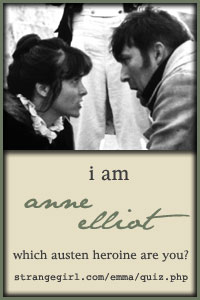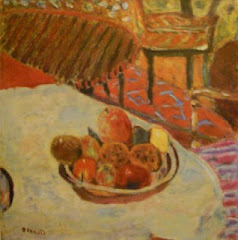While
waiting in the Philadelphia airport for my late flight, I sat with my computer
near a window looking out onto the wet tarmac, and somewhere on the Internet
found a poem that began “My god...” and went on to describe characteristics. That set me thinking, and here’s my own
account.
My
god leaves clues scattershot.
My
god is in these details.
- the fossil fish
- the flute player sitting crosslegged on a sandstone ledge up at the Ceremonial Cave (playing the interlude from Carmen)
- the red quintessence on a blackbird’s wing
- a mound of cloud seen from a plane (the little lights too, on the airplane wing, and footprints)
- a hefty PG Wodehouse collection
- Rilke in translation
- graham crackers and milk
- a Paris rooftop with a little children’s wading pool
- the cat’s eye at the end of Tristes Tropiques
- the Emperor Concerto
- a spool of turquoise thread
- a curl of lemon peel
- the goldfish swimming in their silky circles
- rain in the late afternoon
- a rhubarb-red umbrella, furled
- the frozen breath of lions in the January zoo
- a minister in cowboy boots
- Western ghost towns
- the Rhine in early June, a boat running down it
- the Taiko drummers through an open door one evening after class
- sea turtles in slow caramelly motion
- three red flowerpots
- the big bowl of a pipe (Maigret or Sherlock Holmes)
- light catching on a reeling cloud of sandpipers
- the seeds in a dried chili pod
- forsythia
- landing in Sicily after a night and half day’s flight
- what grows on lava
- burned pine trees nourishing new growth
- the movements of a white knight on a chessboard
- the efficient little legs of a dachshund
- espadrilles
- mittens
- carved santos
- inner-tubing in the snow at Hyde Park
- mercury, spilling heavily from a broken thermometer
- Chinon wine, cool and tasting of the earth
- the taverna under the ancient aqueduct full of nesting ravens
- a silver shaman
- handprints in deep French caves
- the tutu store, with satin toe shoes
- an elevator repairman in the Algonquin
- gingko leaves
- Etruscan filigree
- a wind-ruffled apple orchard
- Zaatar spices
- the old Chimera bookshop
- library ladders
- the old women fishing for shrimp with nets near Hilo Bay
- oxbow rivers silvered with the last sunlight
- picnics with Tanqueray martinis
- pork loin stuffed with herbs
- the shape of certain Js and Cs
- Snoopy typing on his doghouse
- the stripes of melons
- a Keats tag on a carry-on bag
- the Irish fishmonger on the high street
- cutting out lacy paper snowflakes
- deerskin moccasins
- shadow boxes
- sprouting pinto beans in milk cartons
- growing alum crystals
- geodes
It
is a kind of jigsaw puzzle—god, and the meaning of life. I work on piecing it together, all
those hours waiting for my delayed flight. Three hours waiting; five. The pieces do all fit, clearly, but maybe the picture isn’t
set. Maybe it’s more the kind of
thing you see in a kaleidoscope—all those bright bits of colored glass, forming
multiple varied images, one after another, always changing, always new.
(After
too many hours in the airport, one gets fanciful—and out of desperation mixes
metaphors!)
image: Make, Recycled Kaleidoscope











.jpg)




















